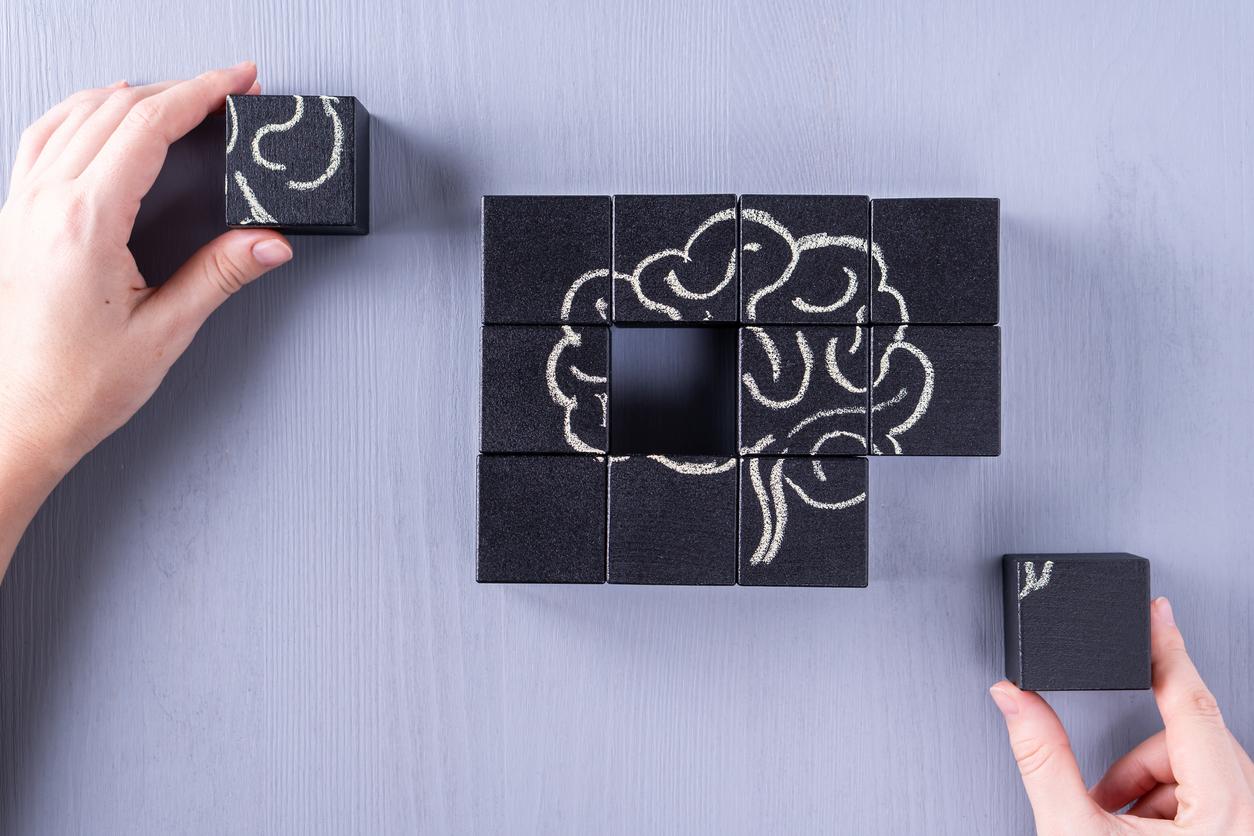What is post-traumatic stress disorder that occurs after shock? What role does our memory play after a trauma? Here’s what to better understand our memory processes after a traumatic event.

How does trauma impact our memory? What are the memory processes that force us to continually relive an event that traumatized us? The Remembrance week organized by the B2V Observatory, which took place from September 17 to 21 in Montpellier, brought together more than 40 researchers, scientists, doctors, historians and philosophers, who came to present their work and discuss the very complex field of memory. At the end of several exhibitions, conferences and round tables, various subjects were discussed such as Alzheimer’s disease, migratory memories, individual and collective memories, learning in children or, as this article discusses, the role of memory after trauma.
Tuesday, September 18, neuropsychologist Francis Eustache and historian Denis Peschanski presented the first results of their research program launched after the attacks of November 13. This titanic and longitudinal project, which brings together 7 coordinated studies, aims to better understand post-traumatic stress syndrome and the memory mechanisms associated with it. Because healthy memory, such as we are endowed with it, collects all our memories and generally represents our past, whereas the traumatic memory which occurs in people in a state of post-traumatic stress is “frozen” in time , punctuated by brutal mental “intrusions” which constantly make them relive the traumatic event.
Memory and trauma conference, presentation of the post-terrorist biomedical research study of November 13 (1000 people) @ ObsB2Vmemoires #memoryweek #montpellier pic.twitter.com/ZSGhZ8XnWQ
– Why Doctor (@Pourquoidocteur) September 18, 2018
The memory processes of post-traumatic stress disorder
“This memory problem is the cardinal symptom of post-traumatic stress syndrome”, specifies Francis Eustache. “The traumatized people see again images of the scene, remember the noises or the smells”. These memories impose themselves on their mind and constantly bring this past event back to the present. As if the scene repeated itself over and over again. “Prisoners” of these mental intrusions which make them relive the traumatic moment, some people tend to avoid anything that can remind them of this painful memory.
This “mania to inhibit them” then encourages them to reorganize their life, their daily life and their habits. More specifically, a person with post-traumatic stress disorder can go so far as to make significant changes in their life, so as to avoid anything that might remind them of the traumatic event. For example, researchers found that some witnesses or victims had changed jobs after the November 13 attacks. Others, having testified in the media, explained that they had never seen the person accompanying them at the Bataclan that evening.
The “Remember study”, directed by Francis Eustache, consists precisely in studying these mental intrusions and the capacity of these people to fight against them. Ultimately, he concedes, “all of this research could perhaps contribute to the discovery of a treatment for post-traumatic stress disorder”.
The role of collective memory
“The 1000 study”, which consists in following the evolution of 1000 people directly or indirectly affected by the attacks of November 13 until 2026, demonstrated that collective memory (which contributes to shaping the identity of a group) also plays an important role in the process of memorializing an event. To explore its mechanisms, the researchers divided the participants into four distinct categories:
– Those directly exposed to the attacks (victims, witnesses, police officers, bereaved parents, etc.),
– The inhabitants and users of the targeted neighborhoods “who were subsequently exposed to the memorialization of these attacks with the presence of journalists, flowers and tributes on the spot”,
– Residents of outlying districts and the suburbs,
– People living in Caen, Metz and Montpellier, therefore having been affected from afar.
Among them are political figures such as François Hollande, at the time of the events, President of the Republic, Bernard Cazeneuve, then Minister of the Interior or Anne Hidalgo.
At the end of 1431 hours of interview, the researchers noted that the attacks that occurred over the past three years (2015, 2016 and 2017) are ranked in the collective memory, “the memory of Mr. Everyone”: the attacks of November 13 are the most present attacks in the collective memory between 2016 and 2018. Specifically, 40% of French people currently believe that these attacks are the most significant terrorist act since 2000, ahead of the September 11 attacks. By further refining the research, the researchers found that the Bataclan attack remains the most significant event of the evening of November 13 in collective memory.
Forgetting is part of memory
Not that they are less important, but the study also highlights a “memory drop” concerning the attacks of January 2015, which we recall, had raised a movement of national solidarity. According to Denis Peschanski, the fact that these attacks were perceived as less striking in 2018 is explained by the fact that forgetting is part of memory. Over time, the brain naturally makes a selection and only retains what seems important or essential to it. The emotion felt and the personal relevance (if one is, or feels concerned) can drive this memorization-forgetting process.
“Our memory is powerful: it has the power to synthesize all the information we receive. It cannot keep everything, that would be impossible, so it sorts it out”, explains Francis Eustache. “It’s a kind of ‘game’ between memory and forgetting. Some events will take precedence over others. But the latter are not completely forgotten, because it suffices for something to happen for them to come back up.” . In summary, we have a “strong memory and a weak memory”.
.















